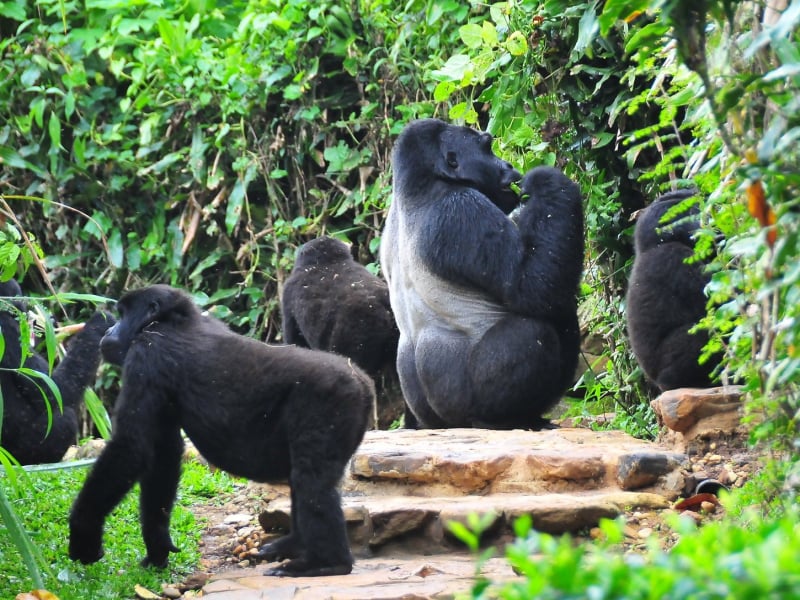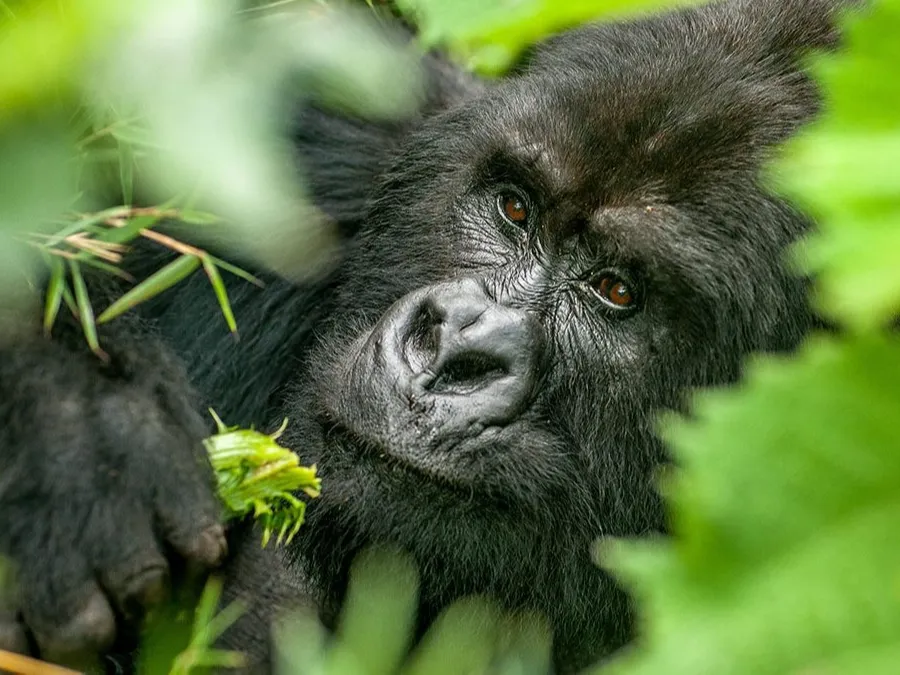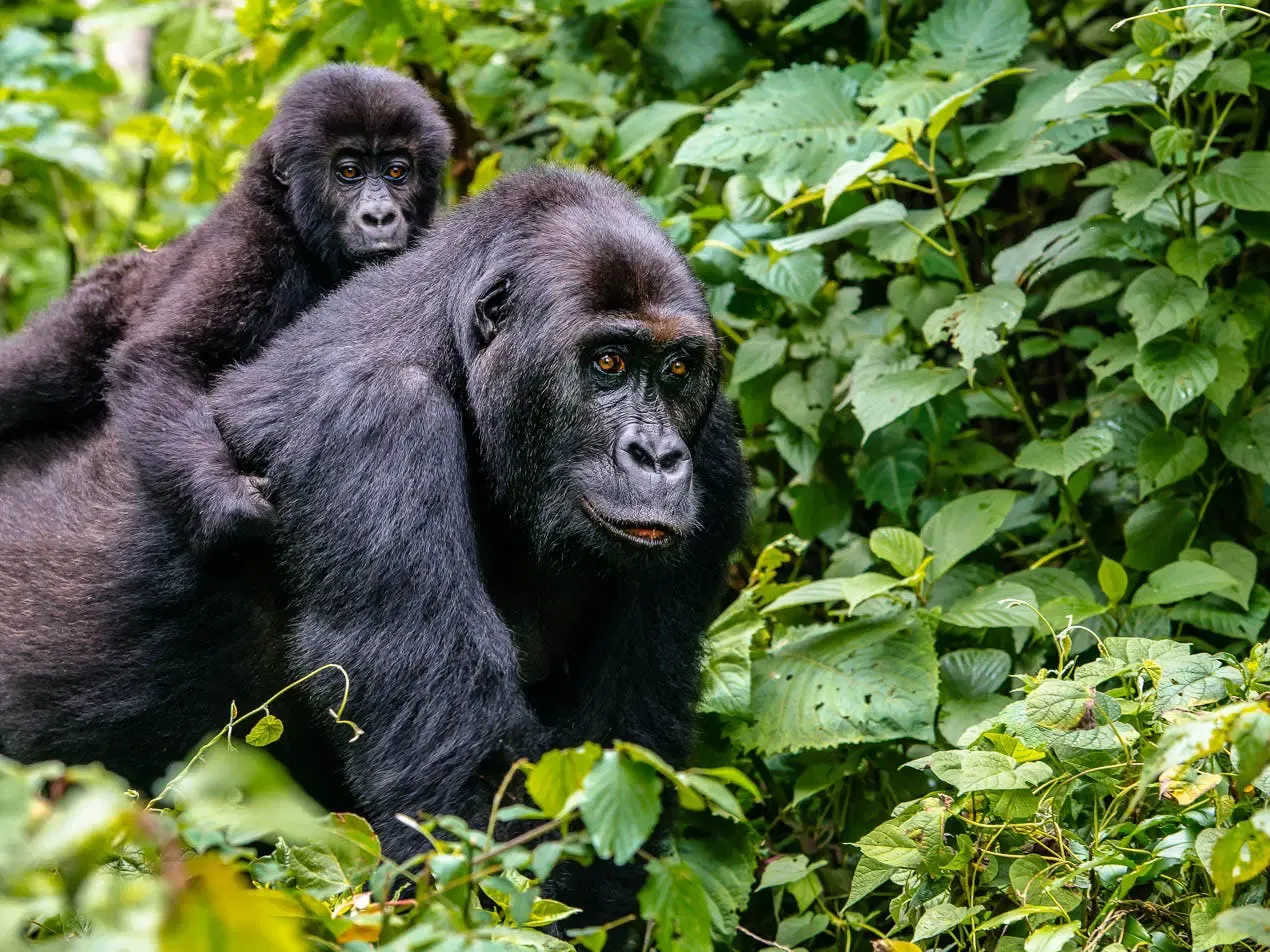



You are here! Home/EnterUganda/Activities/GorillaTrekking
Gorilla trekking is a popular and highly regulated activity in Uganda, offering a unique opportunity to witness these magnificent creatures up close while contributing to their conservation.
Bwindi Impenetrable National Park: This park is the most popular destination for gorilla trekking in Uganda. It is a UNESCO World Heritage Site and is known for its dense rainforest. Bwindi is home to several habituated gorilla groups, which means they are accustomed to human presence.
Mgahinga Gorilla National Park: Located in southwestern Uganda, Mgahinga is part of the larger Virunga Massif shared with Rwanda and the Democratic Republic of Congo. The park is known for its volcanoes and offers gorilla trekking opportunities.
Gorilla Trekking Permits: Gorilla trekking in Uganda requires a permit, which allows you to spend a limited amount of time with a gorilla family. Permits need to be obtained in advance through the Uganda Wildlife Authority (UWA) or authorized tour operators. It is advisable to book permits well in advance due to limited availability.
Trekking Experience: Gorilla trekking involves hiking through the forest with experienced guides and trackers to locate a gorilla family. The duration of the trek can vary from a few hours to a full day, depending on the location of the gorilla group. Once the gorillas are located, visitors spend up to one hour observing and photographing them from a close but safe distance.
Guidelines and Regulations: Strict guidelines are in place to ensure the well-being of gorillas and the safety of visitors. These include maintaining a minimum distance, not touching the gorillas, avoiding direct eye contact, and following the instructions of the guides. These guidelines are crucial for the conservation and protection of the gorillas.
Best Time to Visit: Gorilla trekking is possible year-round in Uganda. However, the dry seasons (June to September and December to February) are considered the best times, as the trails are less muddy and the weather is generally more favorable. It's important to note that Uganda's equatorial climate can result in rainfall at any time of the year.
Conservation and Community Benefits: Gorilla trekking permits and tourism revenue play a vital role in conservation efforts and local community development. The funds generated from permits contribute to gorilla conservation and support local communities living near the gorilla habitats.